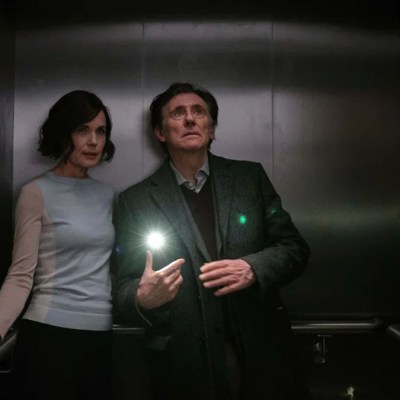War of the Worlds Episode 3 Review
This austere, bleak sci-fi drama shows that we’re all just making it up as we go along. Spoilers in our episode 3 review.

This War of the Worlds review contains spoilers.
War of the Worlds episode 3
In the same way that Cormac McCarthy’s The Road – a fable about a boy and his dad trekking through an apocalyptic landscape – is really an existential scream about the impossibility of protecting our kids after we die (McCarthy dedicated it to the son he fathered at age 65), War of the Worlds is, at heart, about family. Being with them, making the right choices to keep them safe, and inevitably, losing them.
The loss was great in episode three, which did nothing to disqualify War of the Worlds from its current place in the running for Bleakest Drama of the Year. Not only were the streets piled with bodies, but some of those bodies had speaking roles. That’s a rare turn in the apocalypse survivor genre, which has taught us to expect at least a few episodes’ longevity from the Day Zero crew.
Not so here. Demonstrating a pleasingly maverick disregard for the conventions of plot armour, Dan, his MP boss and her two kids are all goners, just like the little girl Dr Durrand ‘rescued’ last week. Nobody is safe in this series, is the point. Don’t start making friends.
This episode gave us our first real chance to do that with the introduction of hospital porter Ash (Aaron Heffernan). A little warmth and humour goes a long way in the midst of all this hushed, chilly dread, and Ash’s instinctive kindness paired with Heffernan’s naturalism made him leap off the screen. We can tell ourselves not to get attached, but it’s too late. If any alien robot sniper dogs are reading this: please, kill anybody you like, but let Ash raise his gaggle of baby orphans in peace.
Fat chance of that. Last we saw those spindly-legged skittering hounds of destruction they were pushing open the hospital doors. Will Kariem and his gun be able to hold them off?
Bigger picture: will Bill be able to manufacture a biological weapon to squirt straight into their gooey centre and save what’s left of humanity? It’s a lot to ask of a grieving man in tennis shoes, but Gabriel Byrne’s neurologist may be our only hope. Other than him, only Emily’s intermittently cured sight points towards a future containing anything other than existential anguish.
French scientist Durrand is currently spiralling into désespoir at the revelation that it was her and her gloomy taste in music that got us all into this mess. The aliens clearly downloaded her message, listened to a few bars of Nick Cave’s ‘Into my Arms’, pegged us all for the chai-latte-drinking, vaping meat-sacks we so clearly are, and plotted their attack. If only she’d blasted them some Mötley Crüe, that might have given them pause. Or at least confused them.
Despair very much remains the mood of this series. Its sparse action sequences are interspersed by elegant shots of desaturated blue-grey abandoned corridors and deserted streets. It’s an atmospheric end of the world, expertly tense and intermittently pulsing with dread. Every exchange of dialogue has air left around it, so the weight of each bleak pronouncement reverberates in the emptiness. In one, a distressed Helen tells her daughter, “I don’t know if I’m making the right choices,” and Emily tells her “No-one knows what they’re doing, everyone’s just making it up as they go.” Exactly so.
Another exchange sees a grieving mother ask “Do you believe there’s a God?” The answer comes as “No”. She holds the hand of her dead infant before putting a gun to her head and taking her own life. It’s just that kind of apocalypse.
All of which makes the Ready Brek glow of Ash and his “You just have to do your best, right?” the more vital. You said it, kid. That’s all any of us can do.
This heavy-hearted series isn’t really about aliens at all, is it?
Read Louisa’s review of episodes one and two here.

